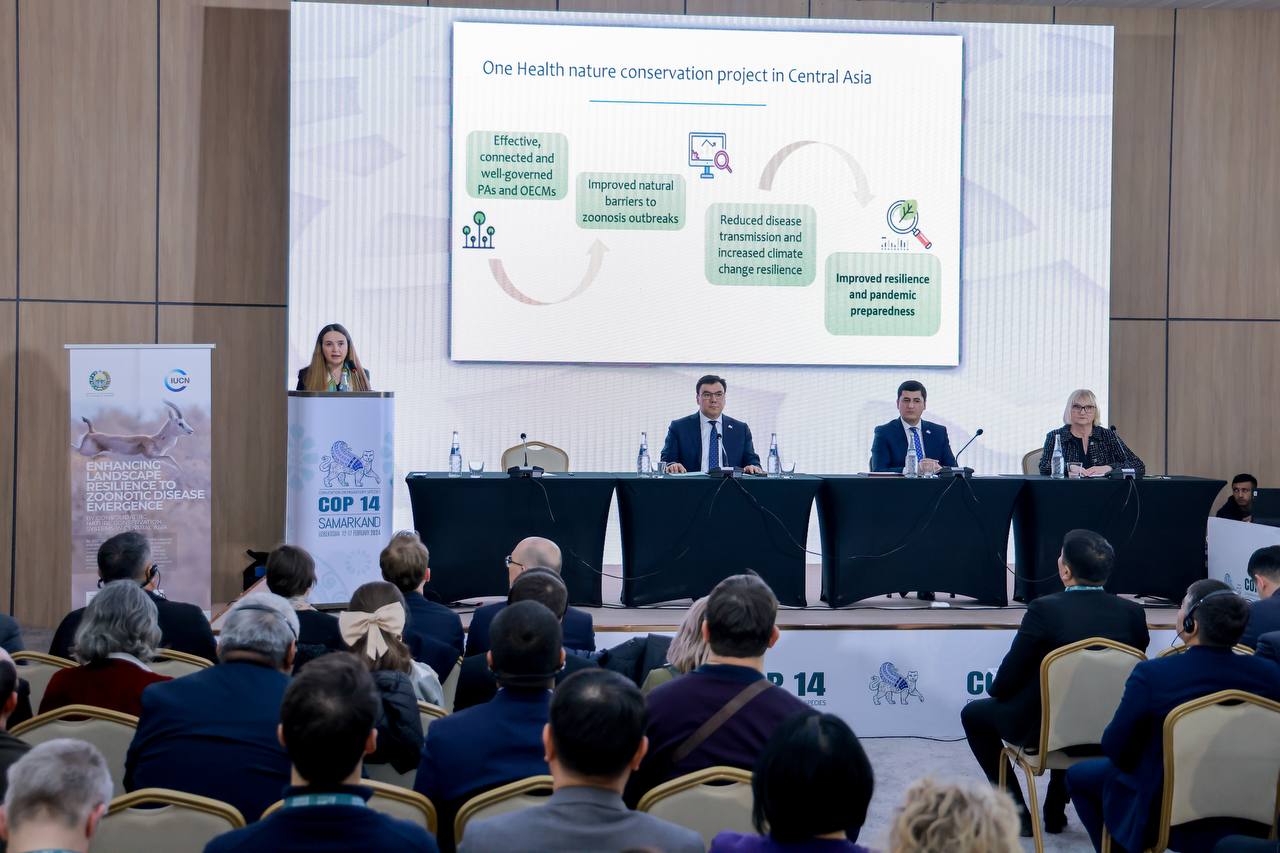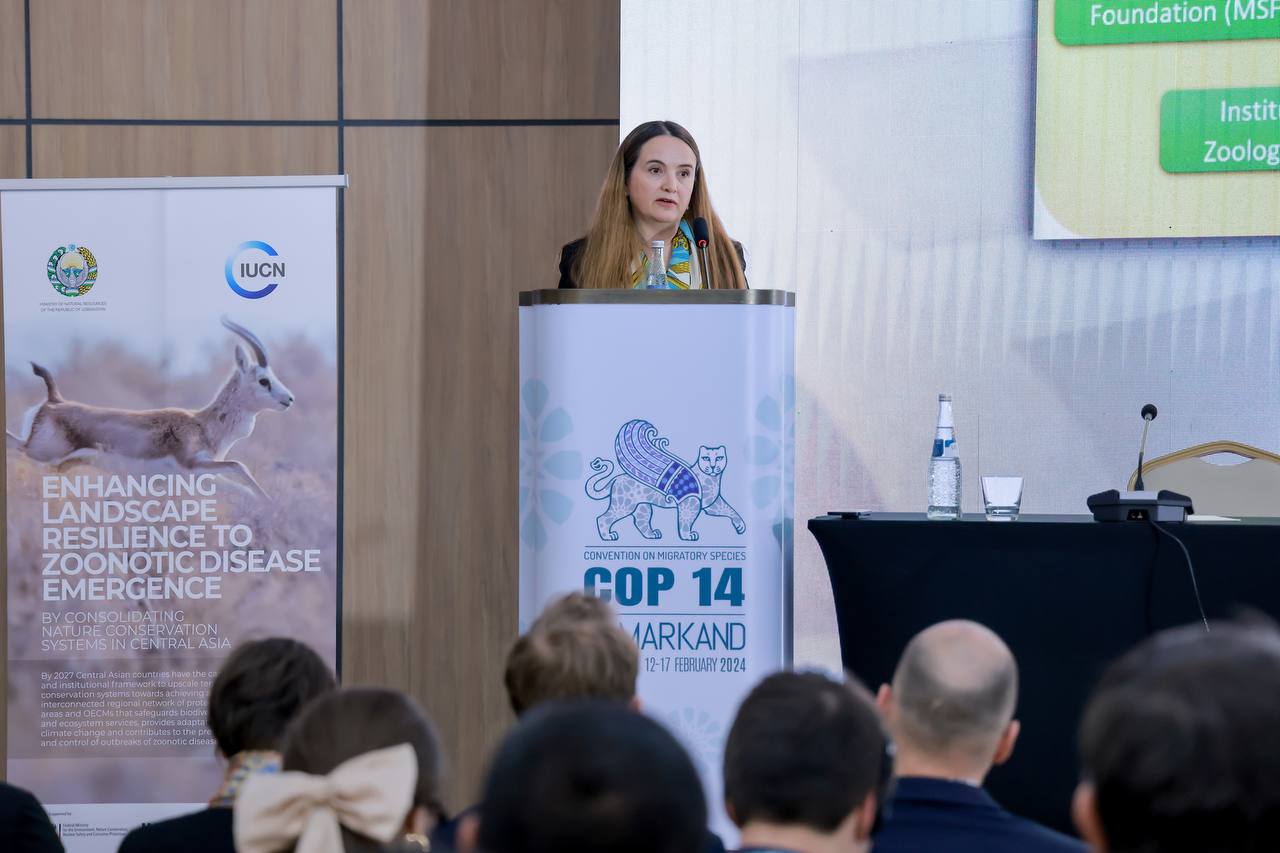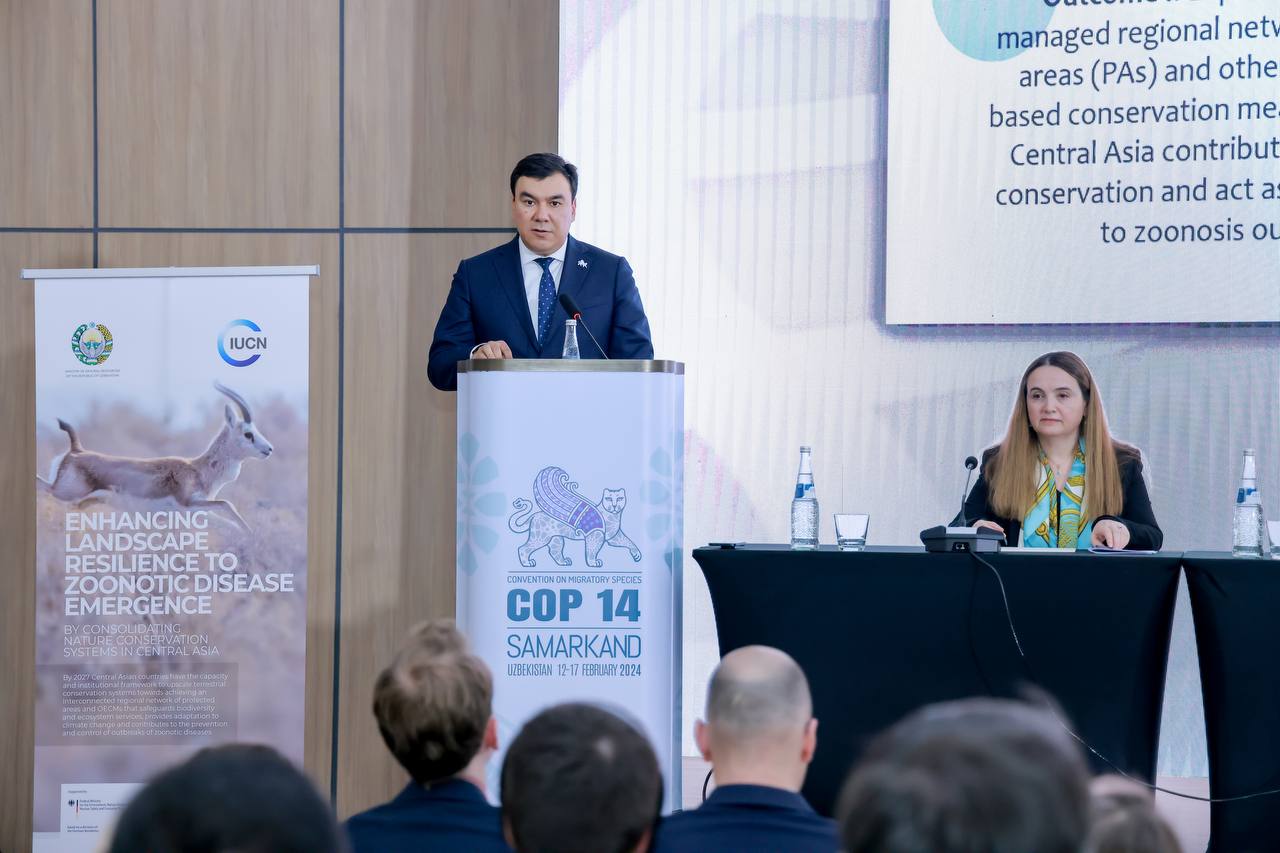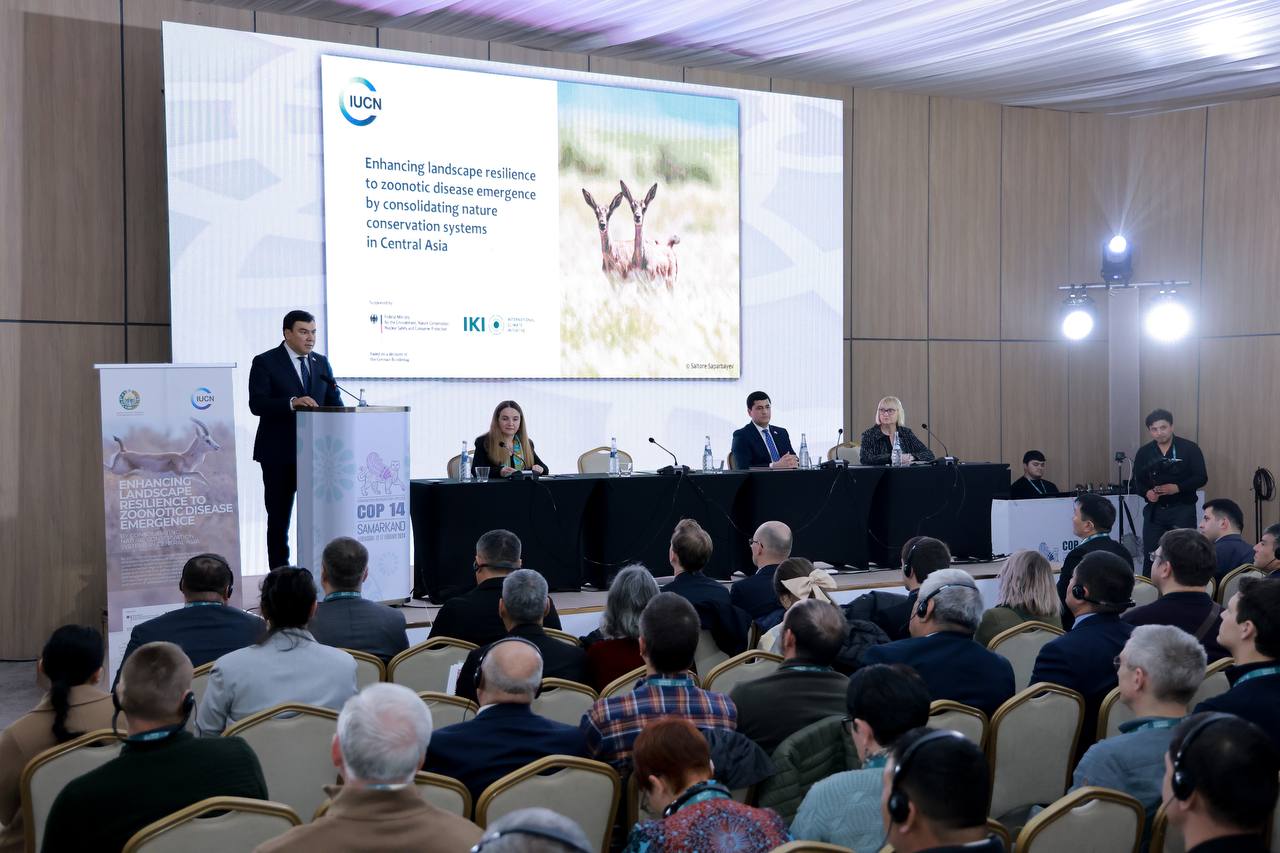
On February 13, the launch of the project "One Health in Central Asia" was launched in Samarkand within the framework of CMS COP14. The joint initiative of the International Union for Conservation of Nature (IUCN) with the support of the International Climate Initiative of Germany (IKI) for 11 million euros is designed for six years.
The event dedicated to the launch of the project was attended by heads of the public sector and international organizations, representatives of the diplomatic corps, NGOs, academia, industry experts, and the media.

"Nature conservation can contribute to mitigating the risk of zoonotic disease outbreaks. This important new initiative will strengthen the resilience of Central Asian landscapes, and bring numerous benefits to communities. We will continue to support the governments here to build regional capacity to apply IUCN's tools and standards, including the IUCN Green List, best practices in species management, and the latest advancements in zoonosis research", said IUCN Director General Dr. Gretel Aguilar.
The risk of zoonotic diseases in Central Asia is exacerbated by biodiversity loss and changes in human-wildlife interactions. As part of the new initiative, IUCN and national and international partners, including all five Central Asian countries, will implement actions to prevent the emergence and spread of zoonotic diseases. The experts will work to consolidate a fair and effective regional network of protected and conserved areas, and strengthen conservation measures and wildlife management for disease risk mitigation.

"Over the past few years, we have observed how the spread of zoonotic diseases like COVID-19 can have a global impact. This has resulted in entire countries being demobilized, transportation connections being disrupted, an increase in food security issues, and massive socio-economic consequences", said Aziz Abdukhakimov, Minister of Ecology, Environmental Protection, and Climate Change of Uzbekistan. "We are committed to expanding regional cooperation for sustainable management of protected natural areas, preserving unique biological diversity and contributing to the environmental balance in the Central Asian region, that will receive significant boost through this project on ne Health in nature conservation", added the minister.
A major regional initiative will contribute to the implementation of the "One Health" approach in Central Asia. Under the full title "Improving the Resilience of Landscapes to the Occurrence of Zoonotic Diseases by Strengthening Nature Protection Systems in Central Asia", the events will focus on the relationship between human, animal, and environmental health, emphasizing the need for a holistic approach to solving complex problems.

"Habitat fragmentation is the main cause of biodiversity loss, and there are many human health risks associated with the exploitation of wild animals and the destruction of their habitat. The "One Health" approach is of great importance for Central Asia because the health of wildlife, livestock, people, and their ecosystems are interdependent", shared Amy Fraenkel, Executive Secretary of the Convention on the Conservation of Migratory Species of Wild Animals (CMS).
In the future, the IUCN and its national and international partners, including all five Central Asian countries, will implement the "One Healthcare of Central Asia" initiative to prevent the occurrence and spread of zoonotic diseases. Experts will work to strengthen a fair and effective regional network of protected areas, strengthen conservation measures and wildlife management to reduce the risk of disease and promote the latest advances in zoonotic research and technology.












